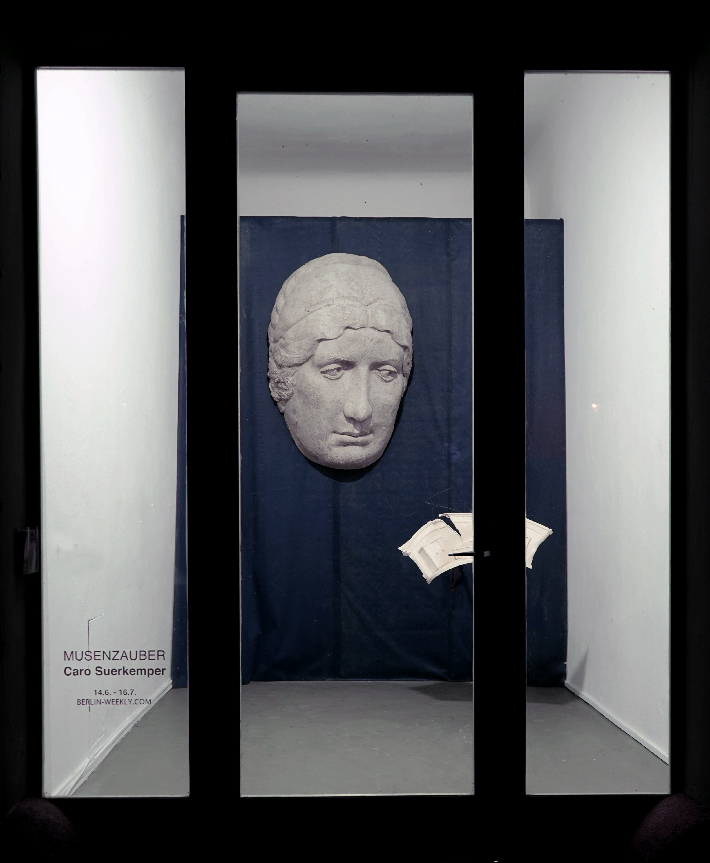
Musenzauber von Caro Suerkemper, 2023
Unter dem monumentalen Kopf eines römischen Starmodells aus dem 19. Jh.* (einer Zeit, in der Malergenies nach Rom pilgerten, um dem klassischen Ideal zu huldigen) schwebt, seltsam verzerrt, eine Puppenstube – ein Schlafzimmer im Stil der 1950er Jahre. Da die „Muse“ etwas schielt, ist nicht ganz klar, ob sie in das Schlafzimmer blickt oder von dessen Anblick animiert wurde, ins Innere ihrer selbst zu schauen.
Das Schlafzimmer ist ein Symbol für das Intime und die Welt der Träume. Mit dem Doppelbett, den Nachttischen und der Frisierkommode steht das Zimmer aber auch für eine konventionelle Gesellschaftsordnung, die klare Verhaltensstrukturen vorgibt.
Beide Modelle vermitteln uns idealisierte Vorstellungen und Traditionen, von denen wir wissen, dass das reale Leben sie immer wieder zunichte macht.
*Anna Risi war eine Römerin aus bescheidenen Verhältnissen, die im 19. Jh. mehreren bedeutenden Malern Modell stand. Sie war auch die Muse und Geliebte des deutschen Malers Anselm Feuerbach.
english
Christina Paetsch deals with processes of perception in our society in the field of tension Beneath the monumental head of a famous model in 19th century Rome* – a time when great painters made pilgrimages to Rome in order to pay homage to the classical ideal – there hovers, strangely distorted, the bedroom of a doll’s house. Since the “muse” is somewhat cross-eyed, it is not really clear whether she is looking inside the bedroom or has been moved to look inside herself.
The bedroom is symbolic of the intimate and the world of dreams. But with its 1950’s double bed, night stands and dressing table, the room also represents a conventional social order that prescribes clear behavioral structures. Both models convey idealized concepts and traditions that we know life continually destroys.
*Anna Risi was a Roman woman from a humble background who posed for several important painters in the 19th century. She was also the muse and mistress of the German painter Anselm Feuerbach.




